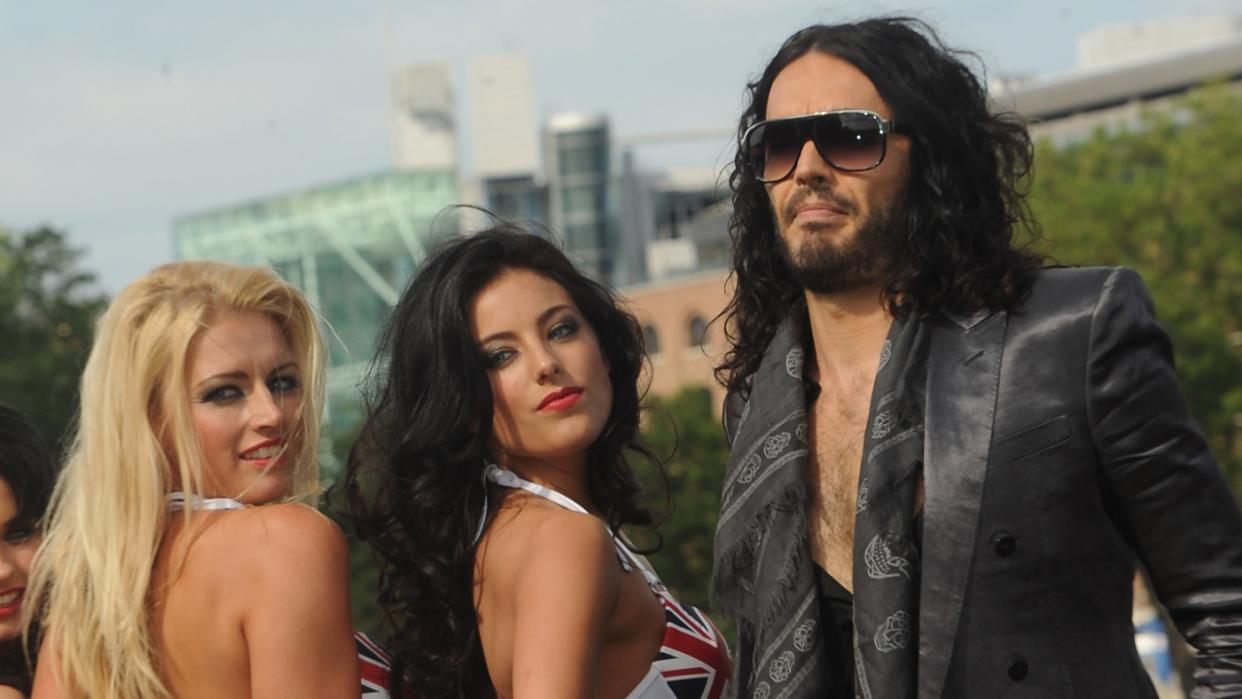Nasty noughties: a cultural reckoning?

- Oops!Something went wrong.Please try again later.
The allegations of sexual abuse and rape brought against Russell Brand, a major figure in Britain's early noughties popular culture, have prompted a re-examination of the excesses and attitudes of the decade.
A 'hard and nasty' era
The early noughties "aren't so long ago that it's possible to dismiss them as a different age" said the BBC's entertainment and arts reporter Ian Youngs, but looking back more than 20 years later, it is clear that there are parts of the decade "that British culture would rather forget".
In the early 2000s, Russell Brand, the comedian-turned-YouTube-conspiracy-theorist now accused of rape, sexual assault and emotional abuse by four women – which he denies – was at the "centre of a messy celebrity scene" that "now feels like the Cool Britannia party gone sour".
"Russell Brand was at the centre of a messy celebrity scene in the 2000s that now feels like the Cool Britannia party gone sour."
Alongside the recent allegations against the comedian, which he has strenuously denied, disturbing clips of the comedian have also resurfaced thanks to Channel 4's "Dispatches" investigation into the star – including scenes where he boasts of his sexual fantasies about an "erotic" Radio 2 newsreader, and another where he exposes himself in a studio while urinating in a bottle in front of colleagues and guests. All now serve as "a sobering reminder of the seedier side of the pop and media culture in that decade", said Youngs.
Pop culture was "hard and nasty" in the noughties, said Sarah Ditum in UnHerd. This was a period of "viciousness and excess, where cruelty was the norm and misogyny was celebrated", when "invasion of privacy was de rigueur" and "sex tapes made headlines" with little consideration of whether "their subjects wanted them in public or not".
Indeed, the "no-holds-barred tabloid culture at that time took power away from many female celebrities: invasive tactics meant they had little means of bargaining with the media", continued Ditum, while the era's "premium on fame served other public figures well and someone like Brand was in a position to exercise exceptional control".
'False comfort to think times have changed'
In the second half of the decade, the dawn of social media and the invention of the iPhone brought with it not just a "huge technological leap forward, but also increased accountability", said James Hall in The Telegraph. "Cameras on smartphones meant people could get away with less while social media meant they were asked to explain themselves more." Then came Operation Yewtree, which launched investigations into historic sexual assault by celebrities such as Jimmy Savile, later followed by the wider MeToo movement.
"Behaviours that had just years earlier been tolerated or covered up were now called out," said Hall. Meanwhile, "organisations that provided the platforms that let Brand flourish – the production companies, the BBC and Channel 4 to name a few – have been forced to get their houses in order". Noughties pop culture that once seemed like a "glistening utopia" filled with "shimmering new possibilities and democratising formats", turned out to be little more than a "flea-ridden wild west".
"The illusion of progress has masked an accelerating descent into misogyny."
It is tempting to think that popular culture has evolved in the past 20 years, said Zoe Williams in The Guardian. Russell Brand's own book, "My Booky Wook", for example, is "full of images of misogynist violence that you would hope would never be printed in the mainstream now". But in popular culture today, figures such as Andrew Tate still have "extraordinary reach" and they have almost nothing to do with "traditional media" – on social media platform TikTok, Tate's videos have gained more than 11.4 billion views.
The prevalence of these kinds of videos has a "real-world effect", said Williams, leading to more extreme misogynist attitudes among younger people than older generations. "The illusion of progress has masked an accelerating descent into misogyny," said Williams. "If we look at the 00s and think times have changed for the better, we are just spinning ourselves the same false comfort."

